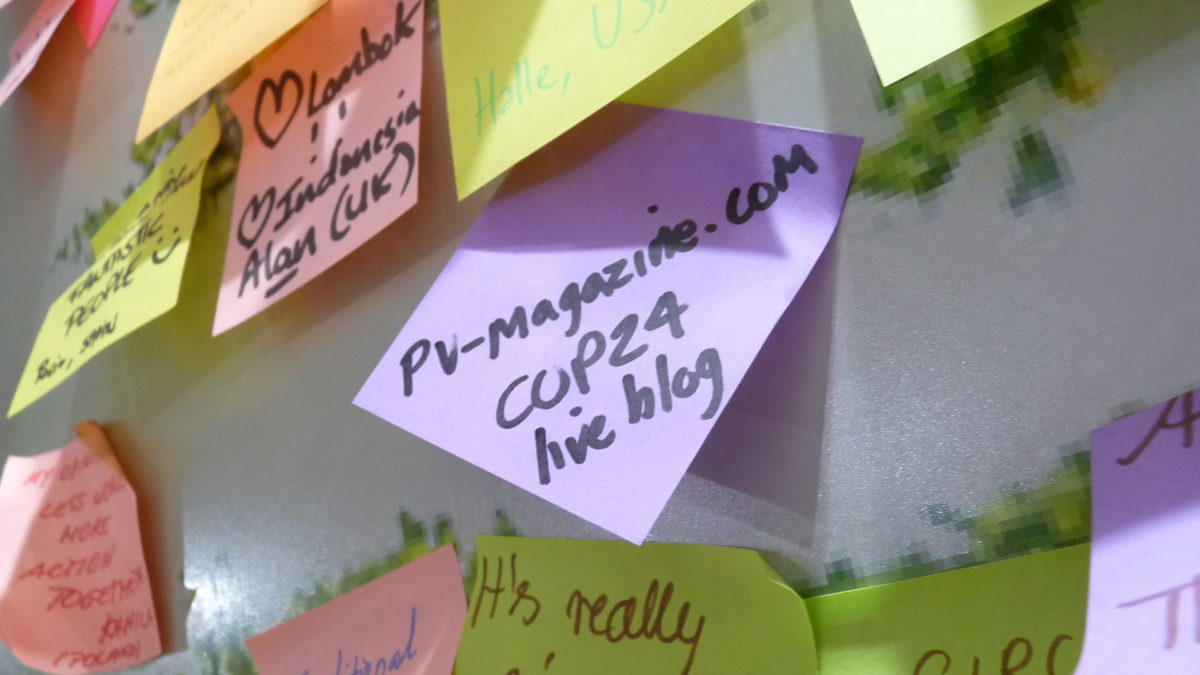‘A suicide pact’
Deploying characteristically strong language, Mr Nasheed – head of the Maldives delegation and a standard bearer for the developing world – has described the current COP24 text as “a suicide pact” for his nation.
Explaining he had been asked to show flexibility on the 1.5C global temperature rise ambition embodied in the Paris agreement, Mr. Nasheed said: “We don’t want to sign a suicide pact at COP24. If we agree to the statements that were shown to us, that would be equal to signing a suicide pact. We want to survive, we do not want to die.
“As it is, it’s not looking good.”
Mr. Nasheed confirmed the small nations’ 11th-hour act of “rebellion” would see them wield their veto, rather than walking away from the talks entirely.
It is a desperate gamble by the nations of the world who are on the front line of the war against climate change. Whether it has any affect in swaying the oil-dependent nations apparently bent on prolonging the use of fossil fuels remains to be seen.
With matters balanced on a knife edge, and the prospect of negotiations continuing into the early evening at least, I’m going to sign off pv magazine’s COP24 live blog for the final time.
Thanks for reading, and let’s hope the negotiators can get their act together.
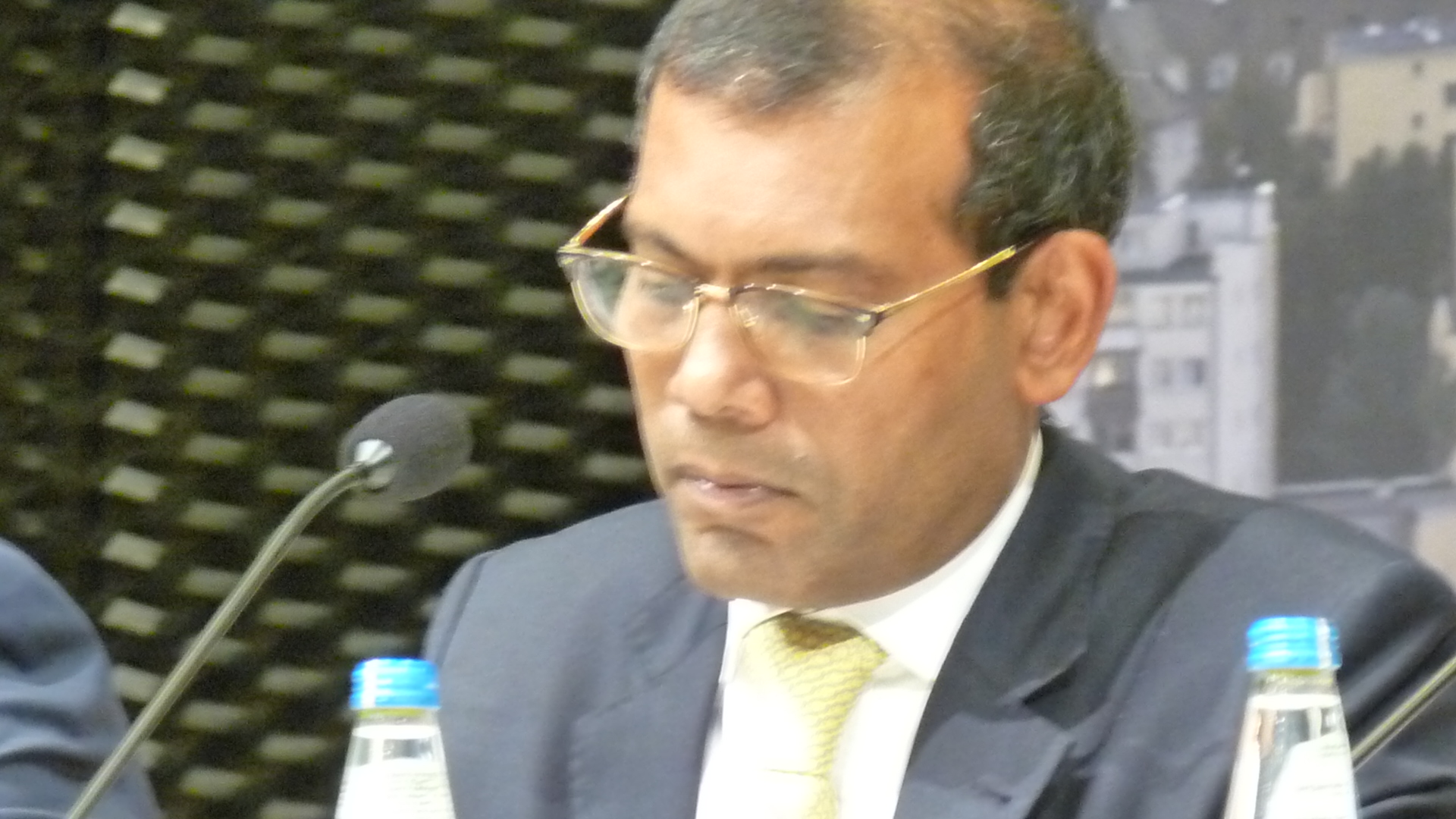
A rebellion
Right now, Mohamed Nasheed, former president of the Maldives, is saying the small island states and least developed nations are preparing to rebel against the COP negotiations.
“We have called this press conference because we are deeply unhappy with the way the talks are going,” said Mr. Nasheed. “We have formed an emergency coalition to save the talks and to save the climate.
“We are, therefore, rebelling against extinction and, if necessary, we will rebel against the talks.”
The impromptu coalition is demanding the findings of the IPCC report be accepted; that loss and damage as a result of climate impacts be reflected in the revised text of the final statement; that recognition is made of the special circumstances of small islands and the least developed nations, in terms of finance; and that the reporting mechanism for emissions reductions includes quantitative targets.
“In short,” adds Mr. Nasheed, “we do not want to see the Paris agreement watered down.”
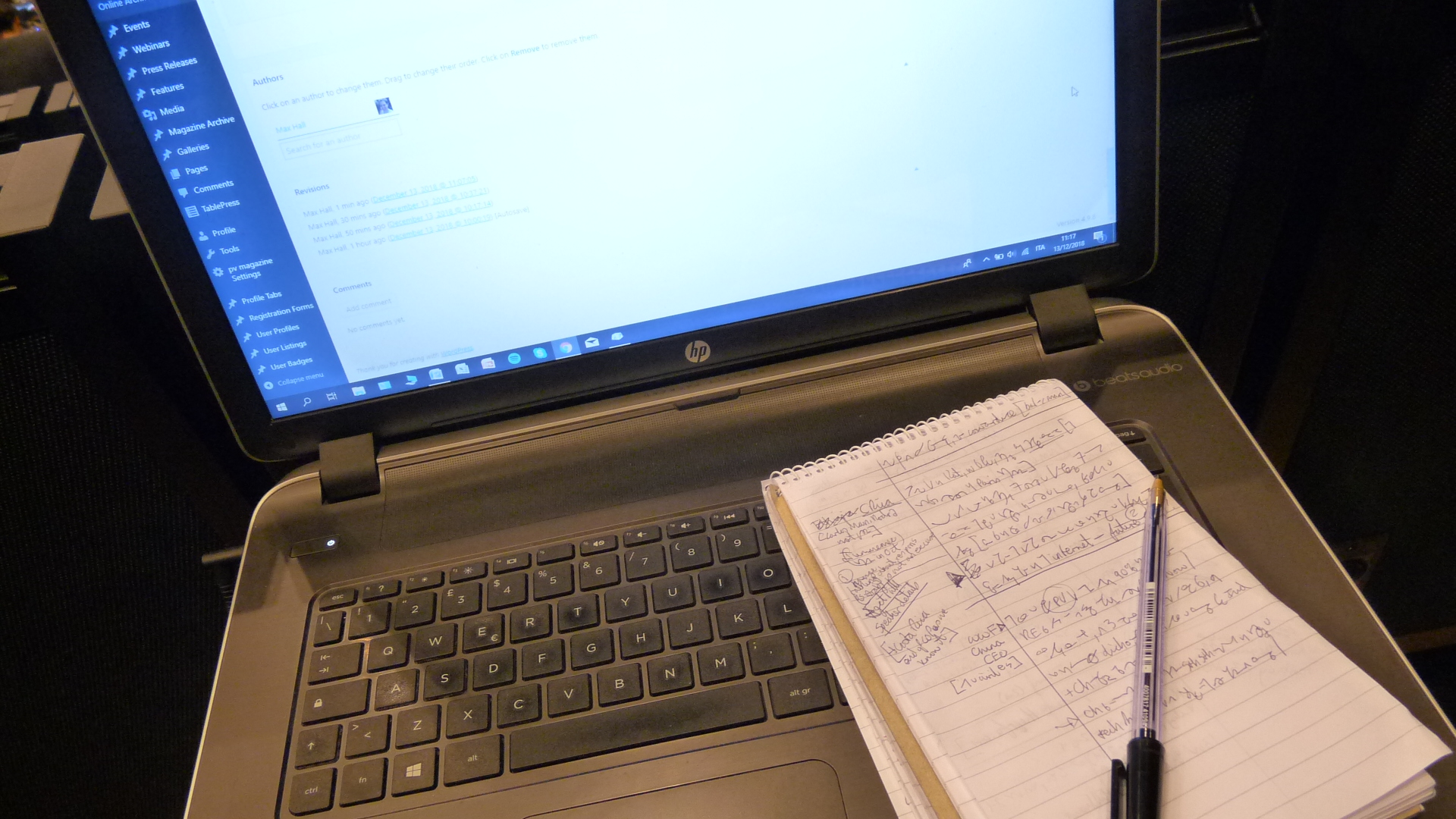
While my laptop gently weeps
… there is time for a little reflection. The number of visitors swirling around is dramatically down today from a reported 20,000 at their peak a couple of days ago. The rule of thumb regarding the lines at the coffee counters backs up that perception – there were only two of us waiting for a morning jolt at 8.30am this morning.
Worryingly, the sense of urgency seems to have faded, at least at the side events. The feeling, whether expressed through sunny optimism or wearied resignation, is that an agreement will be reached. The concern is that any deal is likely to contain fudges on aspects such as the nature of funding available to developing countries from the projected $100 billion, 2020 Green Climate Fund and, even more crucially, on aspects such as reporting and verification of emissions reductions.
My instinct is that the hope of avoiding a global temperature rise of near 1.5C will prove hopelessly unrealistic and we will have to accept a rise of between 2C and 3C. Or, to put it another way, an agreement will be reached that allows the developed world to fight a rearguard as the global South disintegrates and low lying countries vanish. That sort of outcome, of course, would extend the unbroken run of success achieved by the colonial powers in modern times.
Mind you, maybe cynics like me felt just as grimly depressed as the clock turned around to 4pm in Paris, only for the Pacific states and their allies to pull a rabbit out of the hat.
An ominous development
Breaking news folks – and it ’aint good. With an expectant crowd waiting a few minutes ago in one of the main conference areas, it was abruptly announced at a few minutes after 3.30pm that the planned final plenary session has been put back to 7pm.
That means the final round of negotiations is now running six hours behind this morning’s timetable. It appears we may in for more late-night high jinks once more.
I have since decamped to the venue of the planned 4pm press conference by the EU only to be told that too has been either postponed or cancelled. That decision may have been taken because of the delay to the plenary.
Noam place like home
An audible groan went around the room when Scientists Warning.org TV presenter Stuart Scott explained the planned live internet interview with Noam Chomsky will not be taking place.
Instead we will be treated to an interview with “the conscience of America”, recorded a week ago. The reason for the change in plan? It is nine hours earlier at Chomsky’s home in Phoenix. That might possibly have been anticipated in advance.
When Mr. Scott’s request to have the lights lowered is refused it prompts the host to say the facilities offered by the hosts to NGOs are the worst he’s ever seen, adding: “it seems to me the host nation is trying to say something to us”.
Chomsky, true to form, has called for Donald Trump to be sent to The Hague for serious crimes against humanity early in his speech.
Sadly, I have to depart for somewhere with a socket before my laptop gives up.
Will the last person out please turn off the lights?
During the last press conference, there were contradictory signals about today’s all-important timetable. While Laurence Tubiana at one point mentioned she expected a deal to be reached on climate funding by around 5pm – she then swiftly added she might be wrong on that count.
Earlier in the discussion the word “midnight” despite statements ahead of the meeting that Katowice would involve none of the late-night shuttle negotiations seen in Paris.
Over at the media centre, press releases have been issued about the limited time available in the center for journalists after the COP negotiations draw to a close. That being said, when I popped in earlier I was informed of the start times of the final plenaries (wrongly, as it has since transpired) but they were unable to say when those critical meetings would finish.
pv magazine readers can rest assured though, that should negotiations drag on deep into the night… you’ll be able to read about them in the work of more dedicated professionals than this one.
I’m only thinking of my carbon footprint. If I stay here too late the buses won’t be running and I’d have to get a taxi home, right?
Reasons to be cheerful
The press conference given by the European Climate Foundation (ECF) has just concluded in front of a fairly packed media audience, although that may be because Noam Chomsky is due on stage shortly.
Laurence Tubiana, head of the ECF and a key negotiator behind the Paris accord has offered an optimistic view of proceedings and even started discussing the way forward after today.
She brushed aside questions about America’s perceived attempt to scupper the talks by saying: “The U.S. tries to block on many subjects, there are always spoilers. At the G20, 19 countries supported the Paris agreement – 19 plus one. I don’t think anyone will be disappointed tonight.”
Ms. Tubiana was asked by pv magazine how to bridge the gap in perceptions between the developed world, with its call for every nation to take their share of the fight against global warming, and its Southern counterparts, who claim that is an attempt to wriggle out of historical responsibility for causing climate chaos.
In response, she rejected the old system of superpower politics which involves the U.S. and China having to reach agreement and then take the world with them, adding: “I don’t think you replace an empire with another one.”
It’s all about the brackets
An interesting side issue to that grilling was explained by a member of the Indian press, who said there is a classic example of multilateral negotiating going on.
Indian correspondents are concerned at the prospect of climate finance in the form of non-repayable grants being replaced in the final Katowice text with loans and further mentions of financing insurance.
The correspondent I spoke to explained the mention of loans in the document as it stands at the moment (1338 on Friday) comes after the phrase “for example”, and is enclosed by standard brackets, or parentheses, like these: (…). He said that means they would not be binding on member states in any final agreement because it is only aspects contained within square brackets that are up for negotiation.
It’s a fascinating insight into the negotiations process and curious to think the fate of humanity hinges on such details.
That said, as a grammar champion who is roused to fury by missing or misused apostrophe’s (just testing), perhaps I should be pleased at such developments.
An impromptu press conference
Asked by pv magazine whether the United States’ refusal to include mention of historical responsibility for climate change in the negotiations is holding up progress, Mr. Mehta dodged the question.
He said: “When the Indian government is part of negotiations, our experience is not something we would like to discuss in the press.”
Having initially been reluctant to take questions in what should have been a relatively soft valedictory address, the additional secretary faced some tough questions from his domestic media, mainly concerned with the watering down of climate finance commitments from the developed nations.
His response was to repeatedly stress the need for agreement and a harmonious outcome and he refused to take the opportunity of taking a swipe at those nations holding up proceedings.
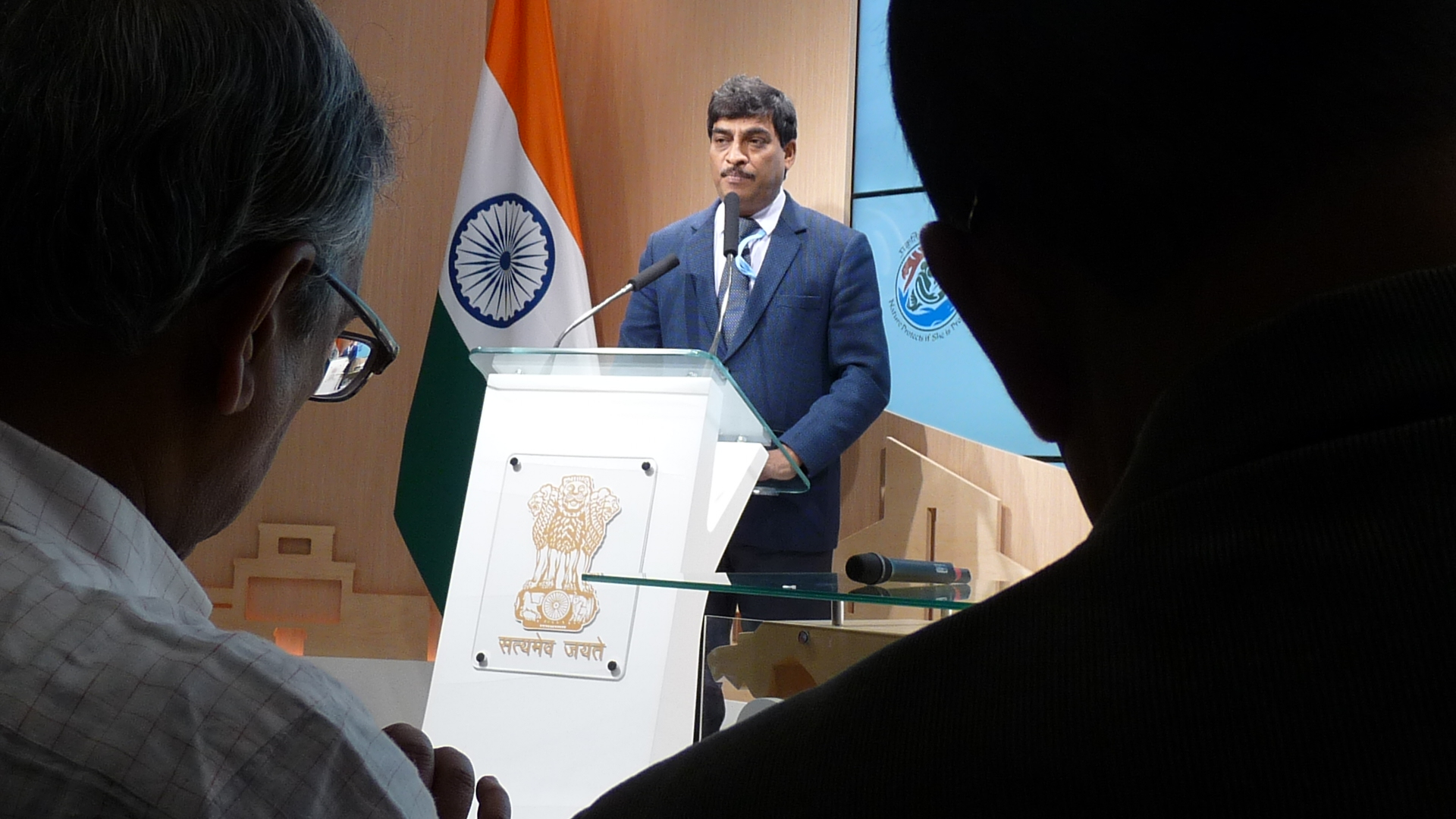
We’re heading into time added on
Ominously, the final plenary session of this COP has been put back two-and-a-half hours to 3.30pm.
With that in mind, I've headed back to the India pavilion for the closing presentation, which will be delivered by Shri AK Mehta. Despite those gansta rap initials, he’s actually India’s Additional Secretary for the Ministry of Energy, Forest and Climate Change.
‘Behavior of the US and others is criminal’
Friends of the Earth has presented a predictably bleak update on the progress of negotiations, with Meena Raman, of the organization’s Malaysia branch, spelling out the main sticking points behind closed doors.
The U.S., said Ms. Raman, is leading the attempt to lay equal responsibility for combating climate change among the world’s nations and, by so doing, avoiding any acknowledgement of the developed world’s historical responsibility for the mess we are in today.
“The whole world is once again being asked to accommodate the U.S. The U.S. is the one that is delaying much more … [but it] is not alone. The entire developed world is united with the United States on this,” she said.
That charge was echoed by Mary Church, of Friends of the Earth Scotland, who said: “The U.S. is clearly identifiable as the villain of the piece in this COP.” Ms. Church, however, went on to group the EU along with President Trump’s COP spoilers in a pointed remark based to her claim the political bloc has achieved only a third of its Paris agreement commitments thus far.
Ricardo Navarro, of Friends of the Earth El Salvador, went even further in his condemnation of the corporate interests and governments he says are standing in the way of a successful, undiluted agreement today. “[This behavior] is not only [ir]responsible, it is also criminal behavior, and it is the responsibility of everybody to stop these criminals acting in this way.”
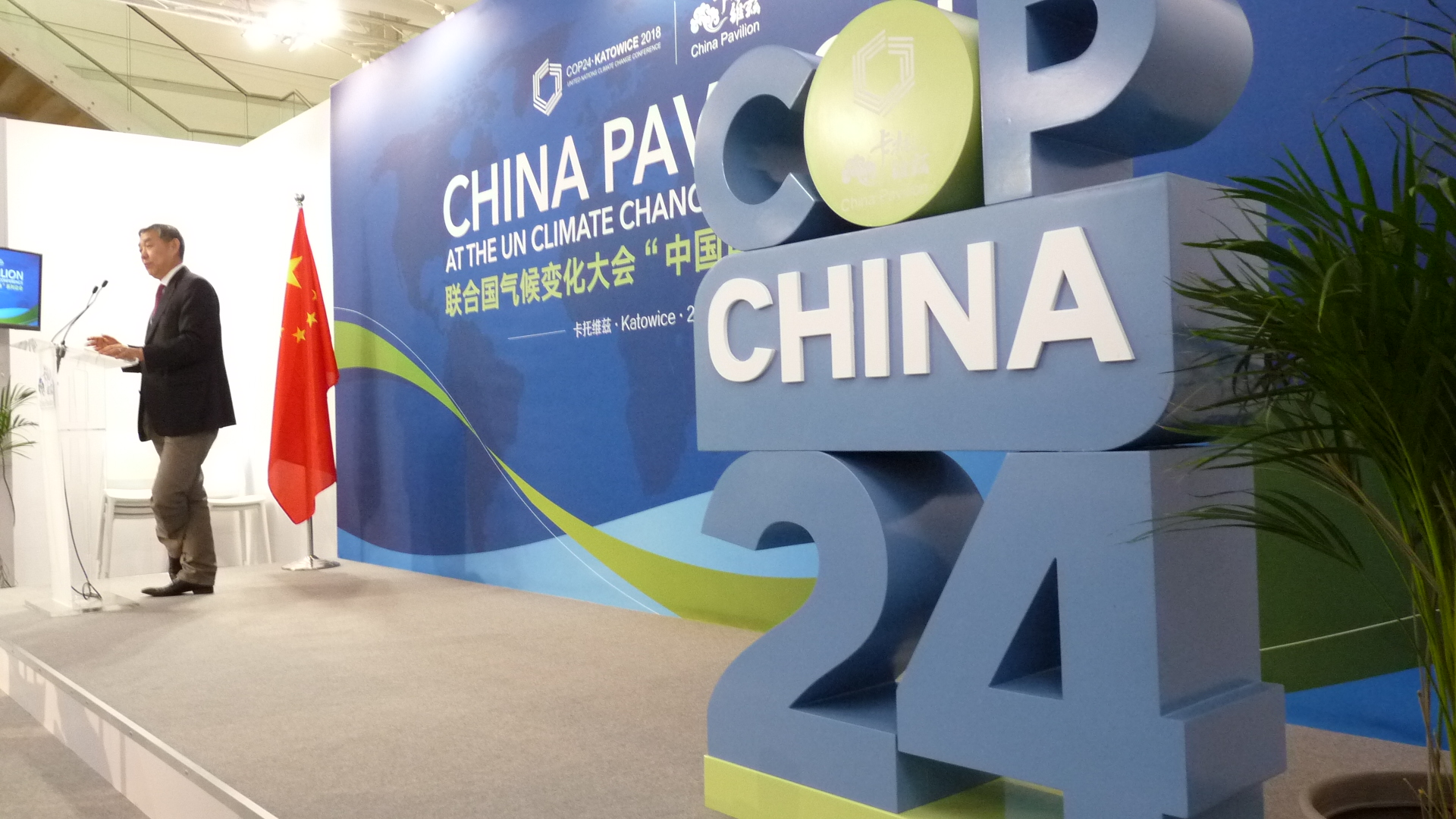
Joi gin from China
I’ve left the China pavilion which I have learned was carbon neutral at this year’s show, with this morning’s presentation staged to offer insights into the latest China Renewable Energy Outlook report.
In solar terms, Xue Han – from the Energy Research Institute thinktank – spelled out that under the nation’s sub-2C scenario solar will supply 23% of China’s total power needs, with wind supplying half.
Her colleague Jian Liu emphasized the contribution electric vehicles (EVs) will make when he predicted 95% of Chinese vehicles will be EVs, PHEVs (plug-in hybrids) or fuel cell powered in 32 years’ time and that electricity will meet more than half the nation’s power demand, up from around 25% today.
To achieve China’s below 2C Paris pledge, said Zhongying Wang, around 2.6 billion KwH will need to be generated from wind power, with a similar amount from solar and renewable energy will need to account for 88% of primary energy generation.
Prof. Wang added: “This scenario should be adopted into China’s 45-year plan. Otherwise renewables will experience another rollercoaster [of] development in the near future.”
Mr. Liu echoed that call, and said better policy support was needed to implement the demand response situation needed to meet the Paris goals of China.
Friends of the Earth is due to give its analysis of this year’s get-together shortly, so I’ll try and hot-foot it over now.
In the last chance saloon
Here we are for one last outing at COP24 and the question today is whether the world’s negotiators can overcome their differences and set us on a path to salvation, or whether our children and grandchildren will be condemned to miserable lives shortened by war, civilizational collapse, hunger and a painful death. And please note, for once I’ve turned off the facetiousness.
I’m sat next to the China pavilion where, I can hear, a presentation entitled “Renewable Energy Promotes Energy Revolution” (revolution being their translation, not mine), has just started.
More attentive readers will recall there is a wifi blocker in the China area – even for loyal Huawei smartphone customers like myself – so I will be forced to go off grid (no solar pun intended) for a while.
Today, it appears, is going to feature a string of updates on the progress of negotiations, with Friends of the Earth and the EU among the organizations due to offer up their thoughts. More on that later.
